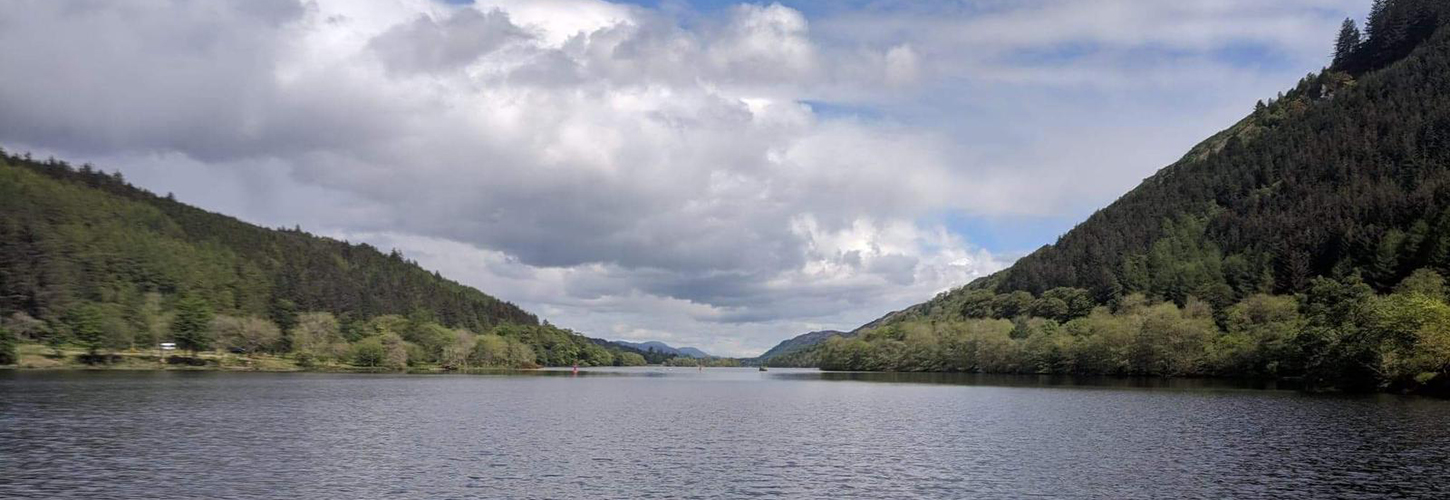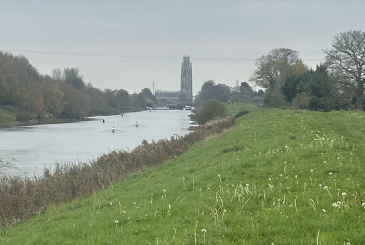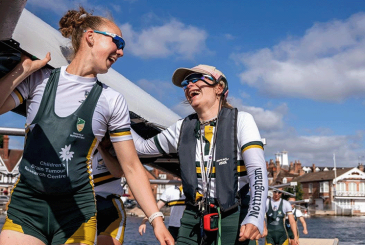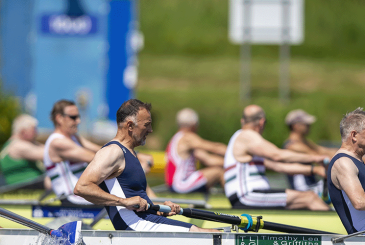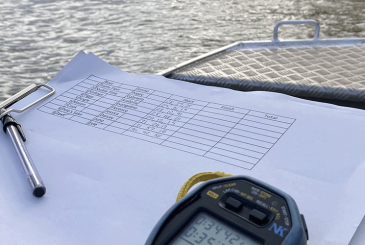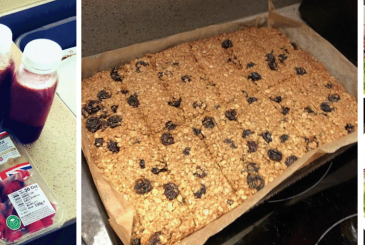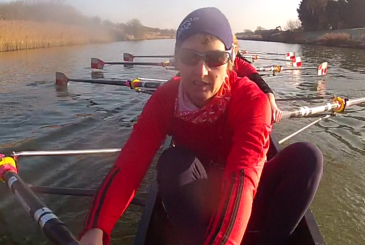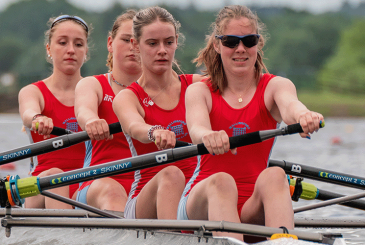Training camps can be a highlight of the season, but how can you optimise your time there? With input from three junior and student athletes, Amélie Sartain from JRN lays out some guidelines that will set you and your crew up for success on your next camp
Master the basics: food and kit
Being low on food is a rower’s nightmare, and no one wants to be training when they’re hungry! From my experience, taking enough snacks to refuel mid-session is key, especially if you’re spending six to eight hours a day on the water.

Alliott Irvine, who spent his most memorable training camp at Loch Ken (pictured above) with University Rowing Aberdeen, stressed the importance of organising food as a group if it’s not organised for you. “Since we were staying in the UK for our camp, ordering a group supermarket delivery to arrive at our self-catering accommodation saved time, and was so much easier than sorting it out myself,” he explained. It probably saved money too, he added, as they planned exactly what they needed to buy.
On top of food, planning your kit bag right down to the blister plasters and the spare pairs of socks is critical. Find out how many sessions you’re going to be doing, and pack accordingly, rather than just stuffing in your favourites. Recalling her training camp on the Thames Tideway, Amy Richardson, who coxed at Cambridge University, added, “Ensuring you have enough clothes for a week where you have limited access to laundry and where you’re potentially going to be out in all weathers is my top tip.”
Be vigilant with hygiene
Being hygiene-conscious throughout the duration of training camp is non-negotiable. Even things as simple as keeping your hands clean to avoid picking up a stomach bug can make a huge difference to your training camp experience.
Setting aside some quiet time for yourself is an essential component of recovery
It’s vital to change kit after every outing, especially if you’re doing multiple sessions a day, to reduce the risk of skin problems. Maggie Seaward of St Paul’s Girls’ School BC highlighted, “Not only does this prevent nasty germs from spreading through sweat, putting on a fresh set of kit allows you to separate the day into two or three distinct blocks, so you treat each session like a new day.”
Take your recovery seriously
Training camps are physically hard; that’s generally the point of them. But it will be easier to get through the tough times if you get enough sleep and allow your body and mind to prepare for the next day’s miles. “Maintaining a positive mental attitude can be really tough during camp, especially if the training isn’t going well or you’re not quite clicking as a crew. It’s vital to rest properly between sessions and every evening to avoid burnout,” Amy explained.
In addition to sleep, setting aside some quiet time for yourself is an essential component of recovery that’s worth incorporating into your daily routine on camp. Whether it’s talking to someone completely disconnected from the rowing bubble, watching TV, or reading a book, I find that making time to wind down is beneficial to my overall mental state on camp, especially on days when the training is at its most intense.
Take time after after each session to reflect on what went well and what could be improved
Alliott agreed with this but stressed the importance of socialising with teammates on evenings, too. “Spending time with your crew off the water is important for team spirit and bonding. Training camps are the perfect opportunity to get to know other members of the squad who you might not have spoken to before,” he added.
Keep your training camp goals front of mind
With all the excitement that comes with every day on camp, it can be difficult to see the bigger picture and remember why you’re there in the first place.
Throughout the camp, take time after each session to reflect on what went well and what could be improved, and whether there’s anything you should start or stop doing. This will help you to set objectives for the next outing. “Discussing our individual and collective goals for the week helped us to go into each new day with a greater sense of purpose, which drove us forward and kept motivation levels high,” Alliott recalled.
“Some of our best experiences as junior and student athletes can come from training camps.”
However, all of the athletes agreed that a ‘bad’ experience on camp does not and should not mean that the season is ruined. “It’s a great learning experience and allows the crew to really align on their goals for the rest of the season,” Maggie added.
Enjoy the change of scenery
Finally, whether your camp takes place in the UK or abroad, take the time to enjoy the new waters. “The change in environment keeps the season and training feeling fresh and interesting,” Amy said, “by being on a totally different stretch of river or a lake for the week, you approach your training from a different angle and, in turn, become more adaptable and cohesive as a crew.”
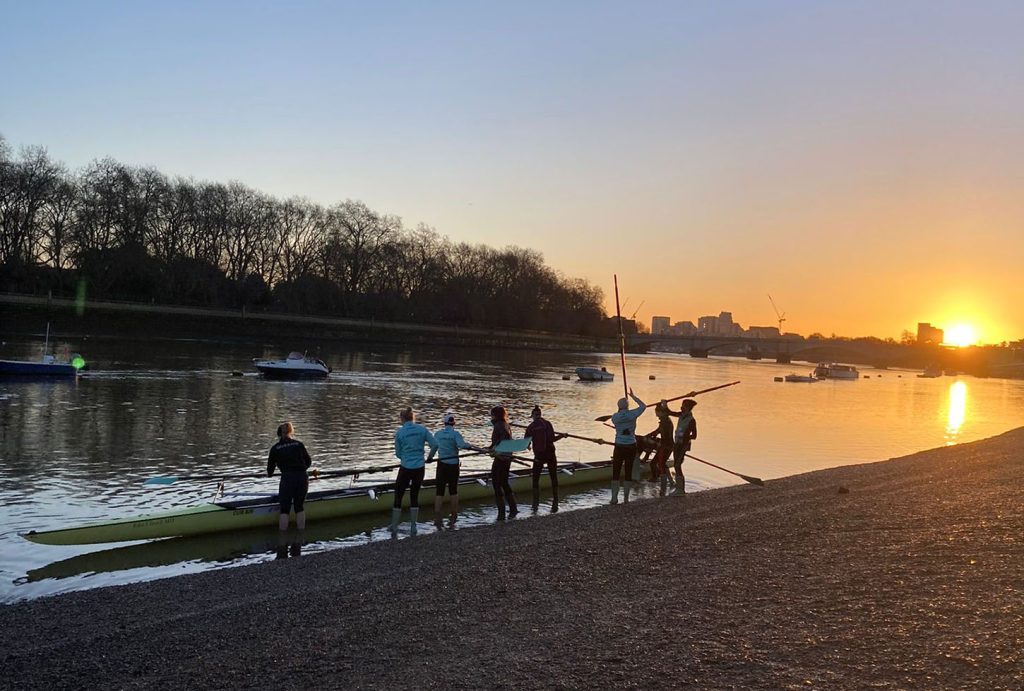
For me, the new surroundings of camp allow my brain to better connect with the specific drills or exercises we’re doing, so much so that I associate these drills with my time on camp every time I do them back on home water. Sometimes, going over and over the same part of the stroke is the only way to perfect it, and training camps offer a unique opportunity for this.
All in all, some of our best experiences as junior and student athletes can come from training camps. They are a fantastic opportunity to bond as a crew, clean up technique, and make memories to last a lifetime.
Photos: Alliott Irvine and Amy Richardson


